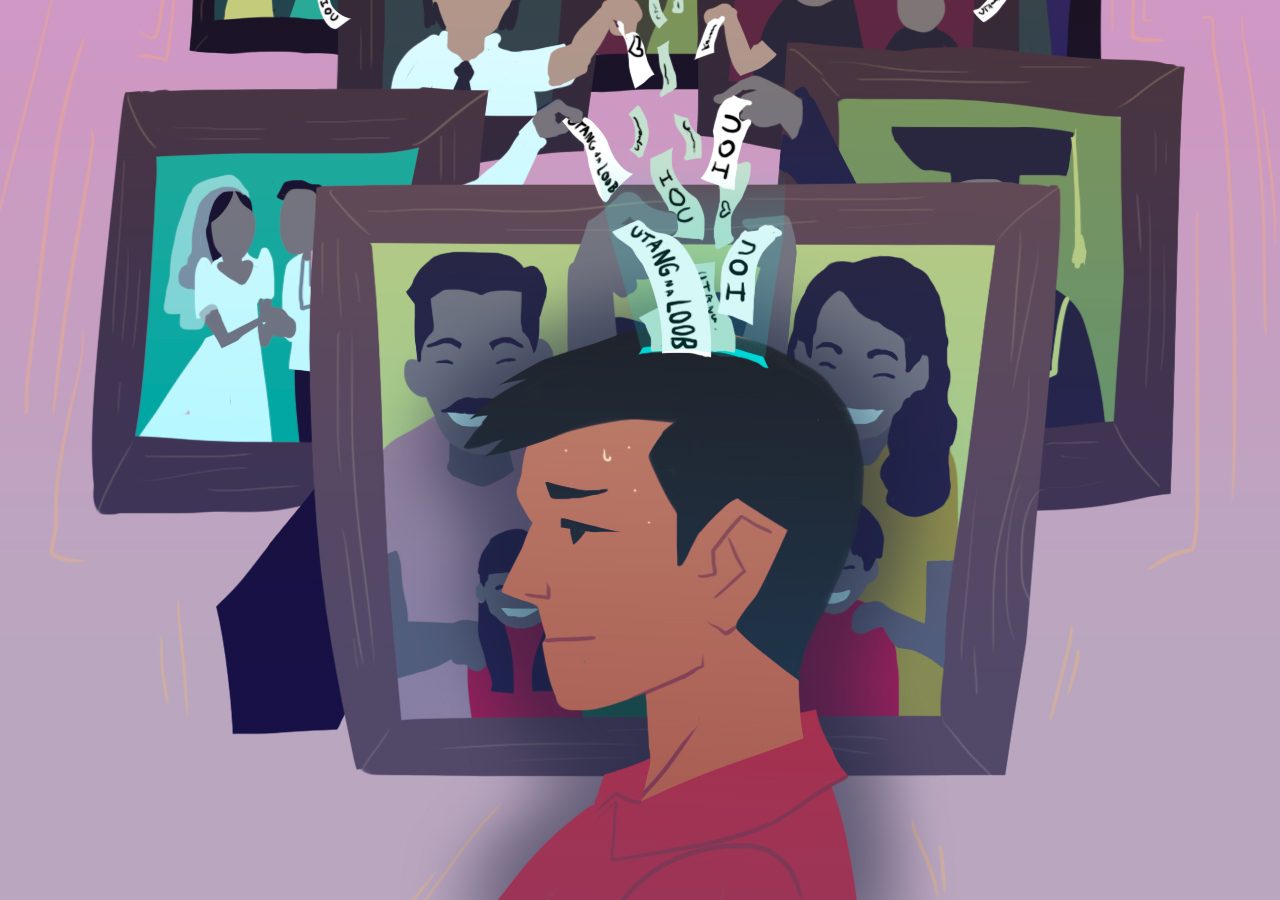SUMMARY
This is AI generated summarization, which may have errors. For context, always refer to the full article.

MANILA, Philippines – When it comes to family, we all have our own plights. For many, however, these “struggles” go way beyond an annoyingly noisy sibling or an overbearing but caring parent. Sadly, their family has become the main cause of their poor mental and emotional health.
Different factors and circumstances may come into play, but it’s very common for traditional Filipino family values to contribute to the toxicity one may be experiencing from their own relatives. For those already struggling with family, the fact that Filipino culture is very family-oriented and community-centric may not always help. Why is this so? Clinical psychologist Abegail Joyce (AJ) Requilman from Empath explains how these age-old values – which are already so embedded in society – can actually become detrimental to our own mental health when practiced too rigidly and too much.
‘Ako mas matanda’
Filipino family culture revolves around filial piety, wherein elders are honored for their wisdom and experience. This is admirable, but when elders should always have the final say, this can make the younger generation feel unheard, unseen, and unappreciated. We were told as kids that highest respects must be paid to anyone older than you, and for some, this is understood by “showing our love by being strictly obedient, well-mannered, and by keeping the family’s name untarnished by not straying away from the given status quo,” AJ said.
When we inevitably reach that age where we start finding ourselves, speaking up, and expressing our own opinions, our elders may take this as disobedience, ingratitude, and disrespect. Because courteousness and taking care of the elderly are also very important concepts in a Filipino household, disagreement can be misconstrued as hostility.
‘Family comes first’
Our “family first” mentality is noble, but when taken to heart too much, this can put a lot of pressure on children, especially on the panganays (first born). “I’m studying/working hard for my family,” many children may say. There is nothing wrong with this, but AJ said that there are times when one has to put his/her own dreams on hold, in order to fulfill obligations to the family.
“Some children who end up being the breadwinner for parents and siblings may set aside finding a partner and getting married as he/she needs to provide for their family,” AJ said. You are expected to be so giving, to the point that you end up losing parts of yourself just to meet others’ needs, until you are running on empty. This is a sure recipe for burnout, emotional fatigue, and maybe even resentment in the future.
‘Bakit siya, mas…?’
Filipino parents have the tendency to compare siblings and/or cousins to one another. “Someone is always smarter, more attractive, more talented, makes more money, than the other. Parents say this to their children to inspire them to improve and live up to their potential. However, this is usually more psychologically damaging than effective in motivating children to do well in school and in life,” AJ said.
Those at the short end of the stick usually end up feeling inadequate and unworthy. This may lead to people-pleasing or attention-seeking behaviors, or withdrawing from challenging situations to avoid defeat. This can also lead to poor self-esteem, low self-worth, or unhealthy coping mechanisms to compensate for the feeling of “I’ll never be good enough.”
‘Wala yan’
It doesn’t help that Filipino families also have difficulty tackling issues. Conflicts and problems are usually swept under the rug, only to maybe resurface at the next family dinner or minor disagreement.
When the conflict is between one of the parents and the child, regardless of who is at fault, an apology usually has to come from the younger one. Most of the time, everyone pretends that nothing happened, too. “Being honest about negative feelings and experiences inside a Filipino household is a challenge and usually, the one who dares open the conversation about it is seen as a destroyer of peace. In the end, conflicts re-occur and little fights grow deeper roots and may even transform to full blown rifts among family members,” AJ said.
Elders also get some kind of immunity to wrongdoings and toxicity. “No matter what they do, they’ll always be seen as the one who is in the right, which can be unfair. It becomes a bigger problem when there is physical and/or emotional abuse going on in the family,” AJ said. Some families prefer to stay silent about the abuse happening at home, believing that the family name must be “protected” because family is “forever.” How come bullying at school or work is condemned, but if from home, it is not?
This is also why some people have trouble asking for help from others. Sometimes, when a child has a mental health concern, relatives may find shame in having a family member seek professional help as others might think “something is wrong in their family home or genes.” “People find it difficult to reveal their gender preferences and identities, as they fear bringing shame to their families. Family comes first, even when this mindset becomes the detriment of their own mental health,” AJ said.
‘Utang na loob’ is real
In Filipino society, parents take care of their children and children, later on, are expected to take care of their parents. This is a beautiful culture when done out of love and free will, AJ said, but this could be damaging when children are viewed as “investments.” “When children are forced or manipulated to set aside their personal goals and aspirations so they could ‘give back’ to their parents by giving a huge chunk of their monthly paycheck, time, and energy, it becomes problematic,” AJ said, especially if parents use the “I raised you” card regularly, or hang what they’ve “done for you” over your head, like keeping a scorecard.
The feeling of being indebted to a parent – whose obligation was to provide for you anyway – can make for a transactional relationship in the future. The cycle of obligation – “I did this for you, so you have to do this for me” – makes you feel like you have to live for others, and this can breed feelings of resentment and disdain.
Filipino family culture is definitely something to be proud of, but too much of any good thing can be bad. If you can relate to most (if not all) of these “Filipino family values gone wrong,” it may be time to do something about it, for the sake of your mental health and even your family’s.
You can either choose to seek professional help, set boundaries, or cut ties – whichever you feel is the healthiest thing to do for yourself at the moment. – Rappler.com
Add a comment
How does this make you feel?

There are no comments yet. Add your comment to start the conversation.